The Griot joins the list of culturally themed Nollywood film releases in 2022, as the year seems to be a year of introspection for Nollywood, with many filmmakers deciding to tell original traditional stories. Adedimeji Lateef, who starred in one of the other films, King of Thieves, plays a more central role in The Griot. In the small village of Wakajaye known for its storytelling prowess, a shy and talented storyteller, Lakunle (Adedimeji Lateef) gives his more outspoken but unimaginative friend, Sanmi (Temiloluwa Fosudo), his stories to tell. Lakunle sets his sights on the beautiful village musician, Tiwa (Goodness Emmanuel), but in his timidity, he cannot bear to face her even though she shows interest in him. He employs his friend Sanmi to relay his intentions to her, not knowing Sanmi also has his eyes set on her. Tiwa vehemently refuses Sanmi’s advances with her heart set only on Lakunle. Sanmi does not give up easily as he tries to use the newly attained social status achieved through his storytelling to have Tiwa at all costs, but everything falls apart when he has to tell a new story at the annual storytelling festival.
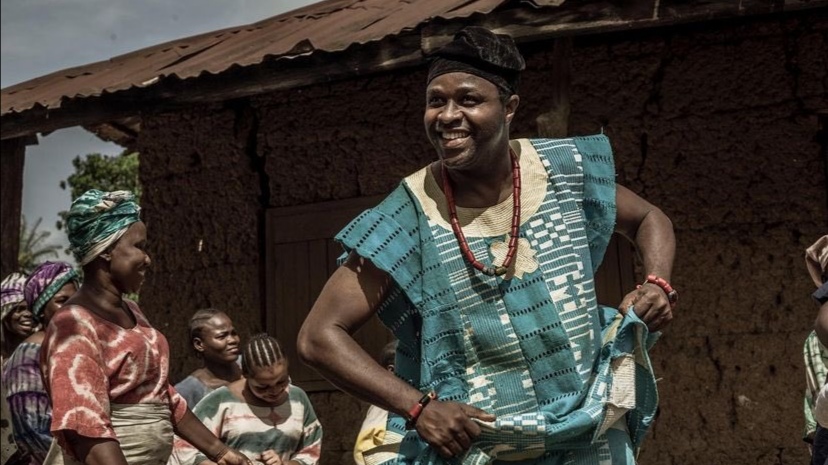 ‘King of Thieves’ Review: Femi Adebayo’s Ageshinkole Steals Hearts in Cinemas
‘King of Thieves’ Review: Femi Adebayo’s Ageshinkole Steals Hearts in Cinemas
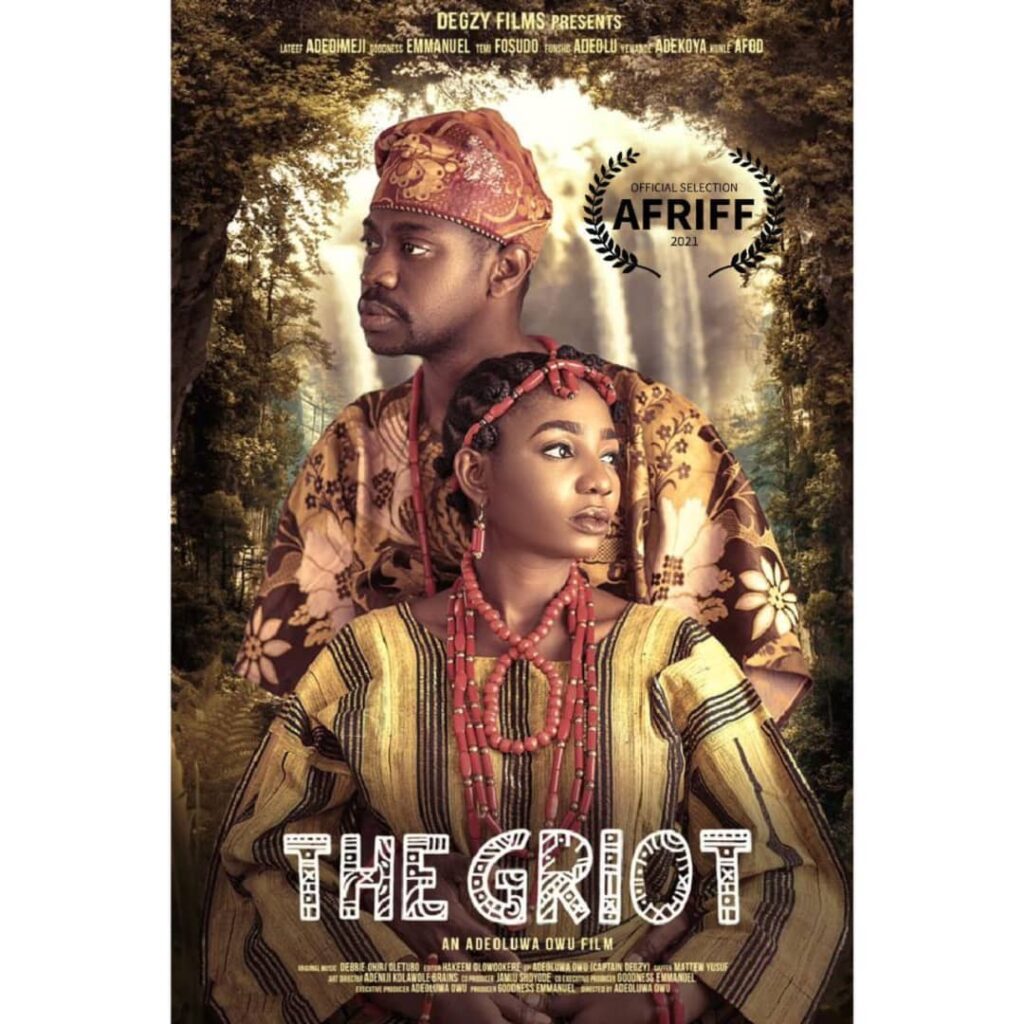
The plot of The Griot is reminiscent of traditional folktales and it reminds one so much about the stories of the cunny tortoise and his escapades and it’s only fitting that the story is about a storyteller. With a plot that looks so promising, it is let down by the execution. The first source of confusion is the language used, which would have been better if they had just stuck to Yoruba, thus preserving the originality and essence of the story. With the cast consisting of actors who primarily speak Yoruba and have starred in several Yoruba films, the decision to root the dialogue language in English is perplexing.
Among many of the plot details in disarray is the period in which the film is set. Little effort is put into its clarity. The Griot seems to be set in precolonial times with the characters still using cowries as currency and storytelling festivals still a huge form of attraction, but the manners in which the characters act do not fit, especially with the contemporary lingo used. The characters wear modern clothing materials made in contemporary styles and I half expected a member of the cast to pull out a cell phone.
Also sabotaging the experience of The Griot is a mismatch of the dialogue description and what is depicted. Tiwa is continually praised as a popular musician in the village, but nothing points to her popularity other than when it is mentioned in dialogue and the only instance where this could have been shown, it is underwhelmingly portrayed that one wonders why the character is being described in that manner. The festivals are touted as large events, so popular that neighbouring communities also attend but the number of people in these scenes seems more fitting for parlour gatherings than a festival; and while this could be due to budget constraints, these scenes could have been replaced by easier scenes that would be achievable.
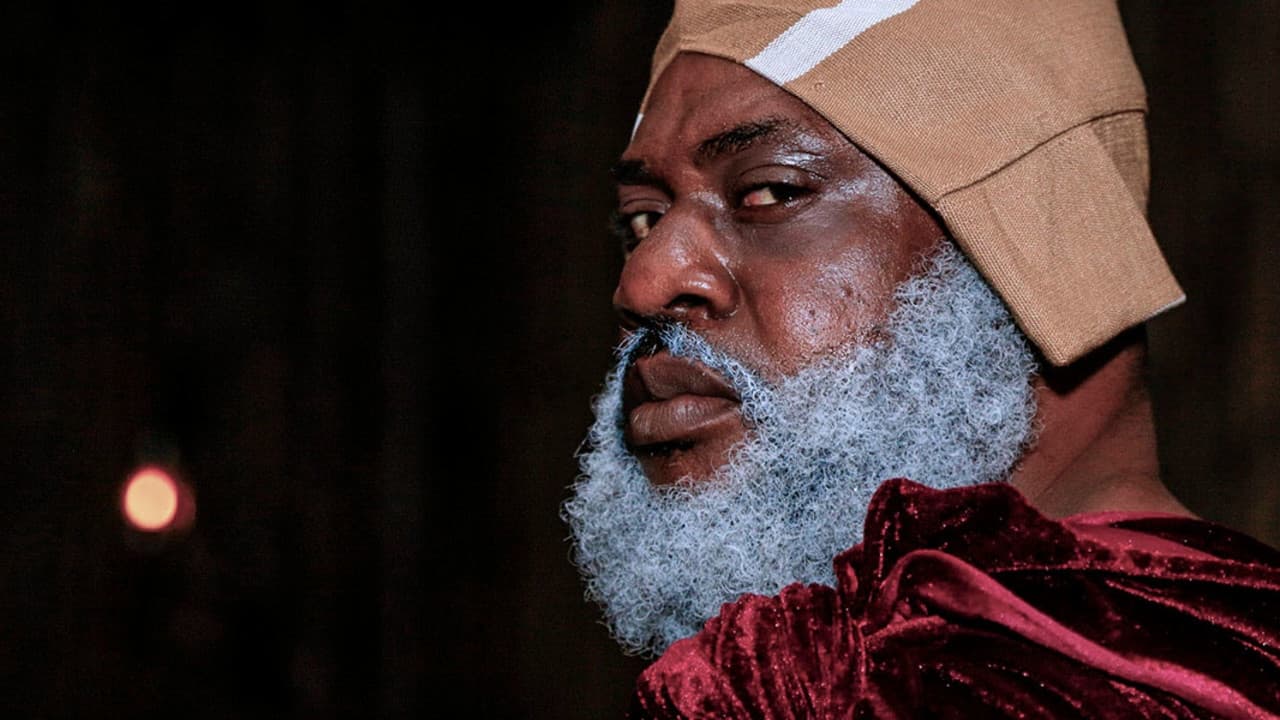 ‘Elesin Oba’ Review: Netflix’s Adaptation of Wole Soyinka’s Play Dithers on the Bridge of Transition
‘Elesin Oba’ Review: Netflix’s Adaptation of Wole Soyinka’s Play Dithers on the Bridge of Transition
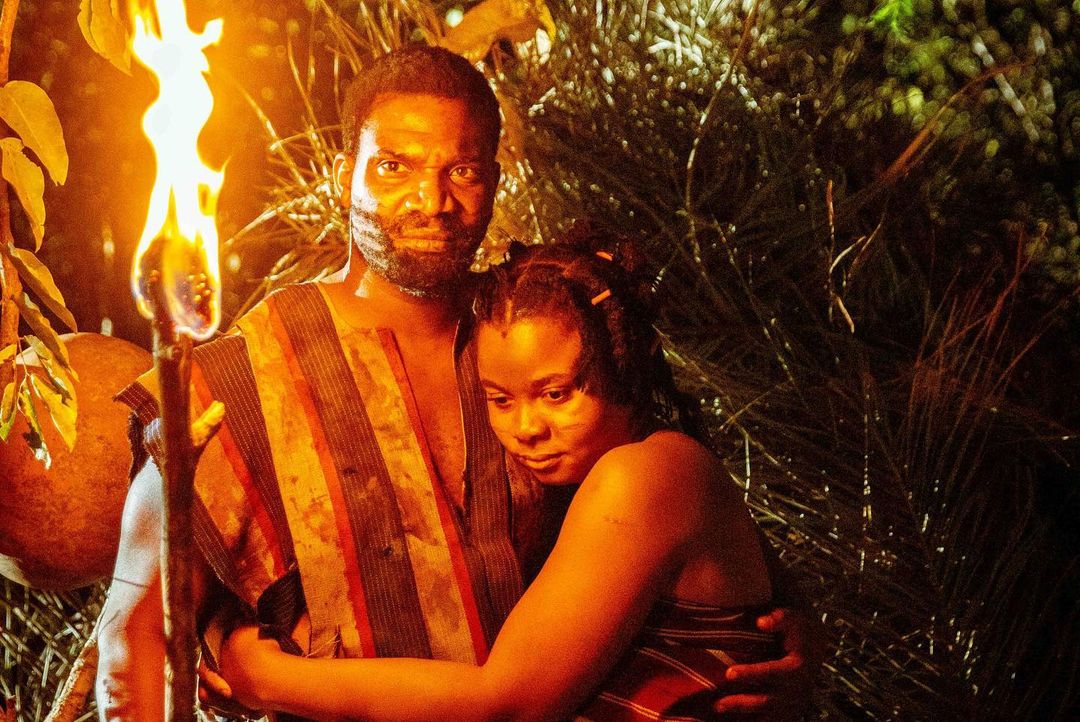 ‘Anikulapo’ Review: Kunle Afolayan Thrills Viewers with New Epic
‘Anikulapo’ Review: Kunle Afolayan Thrills Viewers with New Epic
In popular folktales and moonlight stories, the hero or anti-hero of the story usually goes through a series of events that ends in their downfall or upliftment in a bid to teach a lesson or lessons. And these stories are usually told in a lighthearted manner and sometimes accompanied by songs to make it more interesting, which makes catharsis more poignant. This is unlike in The Griot; the mood and tone all point to a sad event at the end. While this is not necessarily detrimental, in this film it makes the actions look out of sync and stifle the excitement in the story. Unlike in folktales where the subject experiences some form of life lesson like loss of status, wealth etc., The Griot is unsatisfied with that and the plot is insistent on reaching capital tragedy, which opens up a new loose end in an already resolved plot.
The cast of The Griot consists of accomplished actors who give decent performances. The performance could have been better with more definitive direction and the style of acting employed, evidenced in the manner in which the lines were delivered which seem more suited to the stage than screen. This is not helped by issues with the sound design. Many times, the movement of the actors’ lips does not match the lines being delivered, although the lines are not out of order, it looks like the sound was recorded separately and laid over the video.
Winner of the best Nigerian Film at the Africa International Film Festival 2021 (also known as the Oronto Douglas Award), The Griot has a simple, interesting story that is let down by the execution. The authenticity and essence of the story are lost in the language used in delivering but the performances of the main actors make up for it. The story itself makes the film worthwhile.
The Griot is currently streaming on Netflix.
Share your thoughts in the comments section or on our social media accounts.
Sign Up: Keep track of upcoming films and TV shows on your Google calendar.
Side Musings
- Great story
- Many of the cast started their acting careers on the stage, this might have influenced their performance.
- Adedimeji Lateef might be Nollywood’s most versatile actor.
- The songs used for this project should have been way better.
- For her to be the most popular musician in the village, there mustn’t be many musicians in the village.
- Why so shy?
- Will there be a revenge mission?

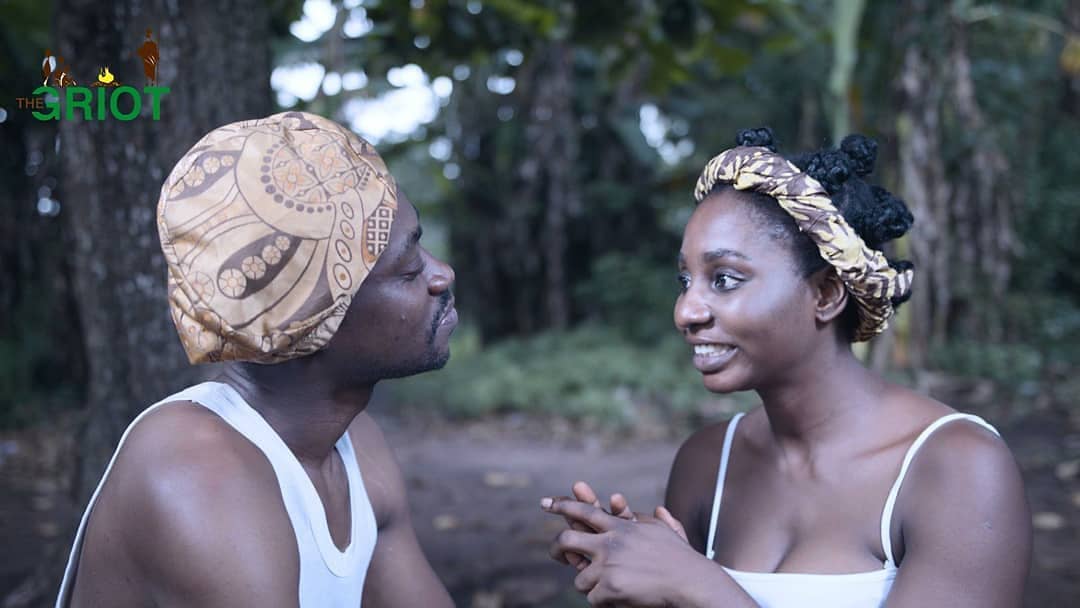
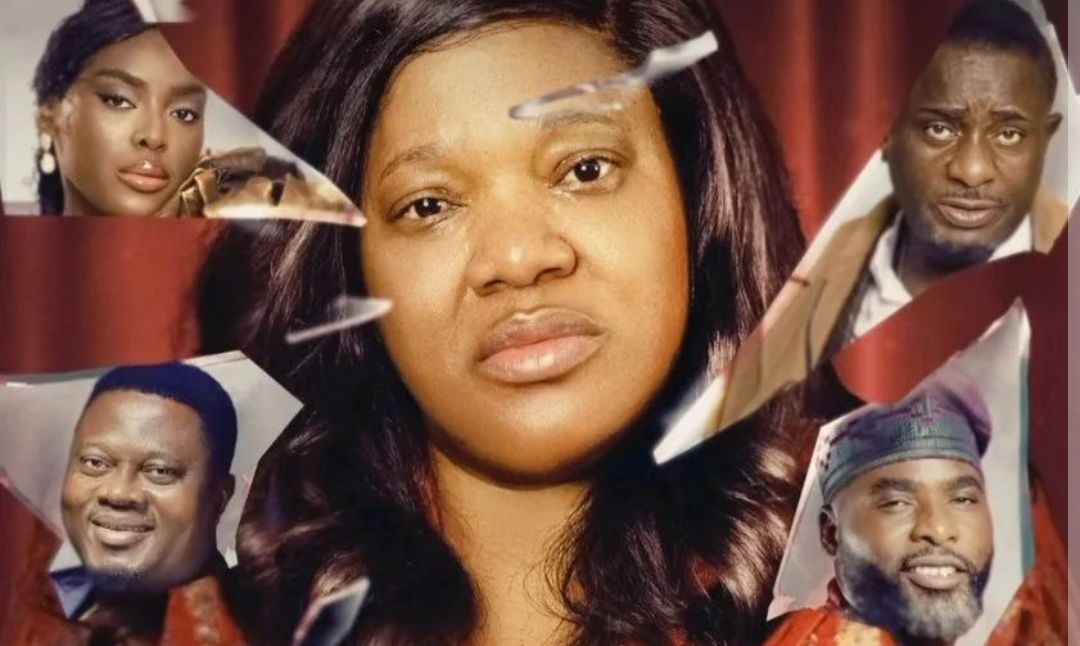
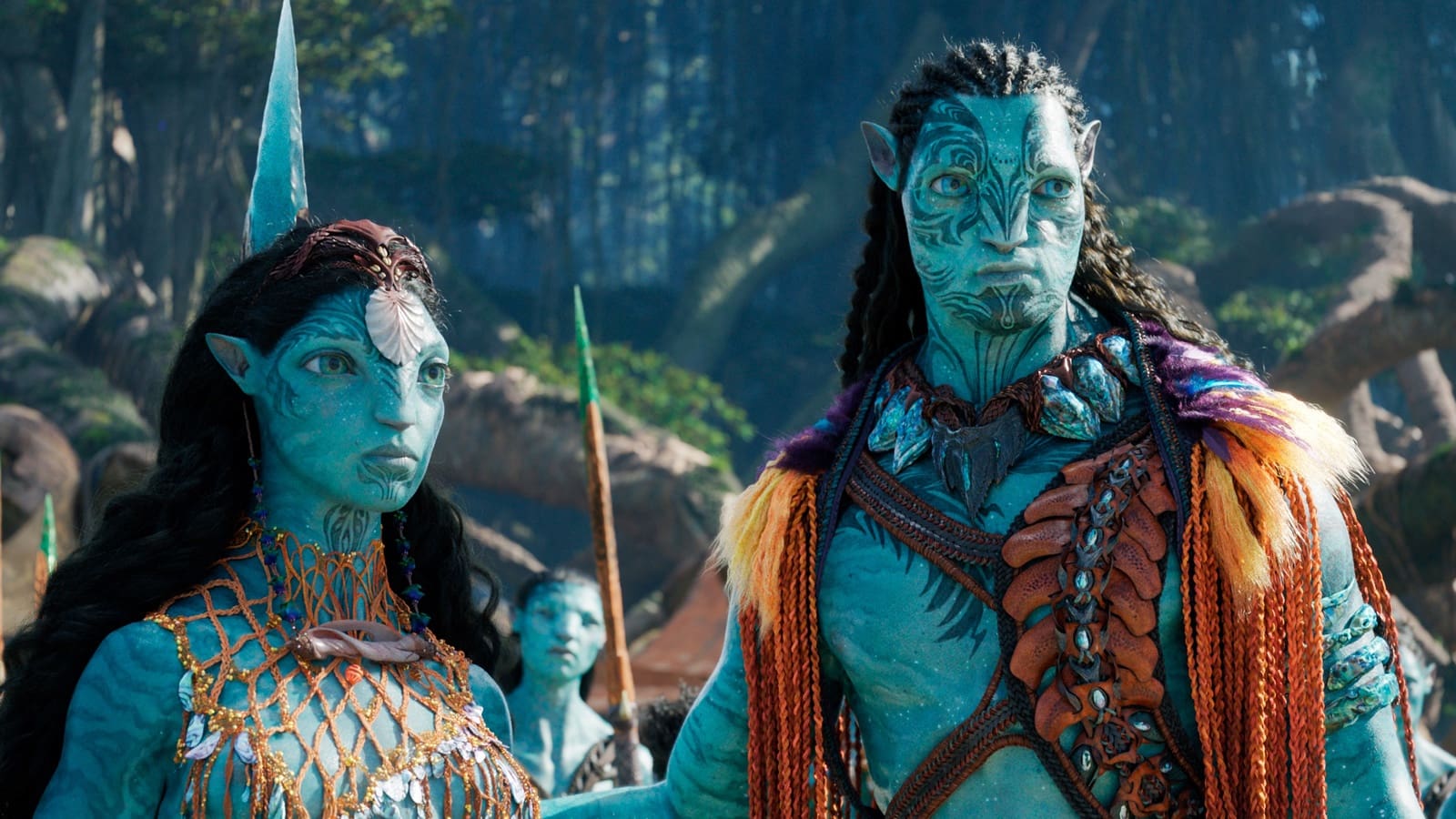

7 Comments